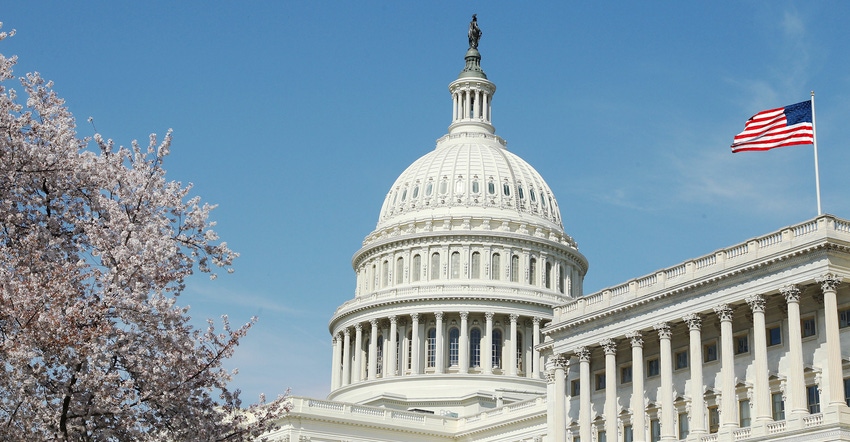Farmers have unique tax bill concern
While Congress has its eyes on the tax overhaul, farm groups are looking farther down the road at potential impact on the next farm bill.

By Alan Bjerga
Farm lobbyists are warily watching the tax-overhaul legislation moving through Congress, which comes with some favorable terms for them now but may have a big catch later: Less money for farm programs crucial to producers dealing with lower commodity prices.
The farm groups are looking beyond the tax debate to a new farm law due in 2018 that could get squeezed if a bigger deficit caused by tax cuts makes less money available for farmers.
Multiple independent analyses of the Republican tax plan anticipate it would boost the federal budget deficit by as much as $1.5 trillion over 10 years. A Congressional Budget Office report released last week concluded that it would trigger automatic spending cuts of as much as $136 billion in the current fiscal year. One of the programs at risk in that scenario is $9.5 billion in farm subsidies, according to the National Farmers Union, the second-biggest U.S. farmer group.
“By far our biggest concern is what does this do to the deficit, and how does that impact upcoming farm bills,” said Roger Johnson, president of the National Farmers Union in Washington. “If we blow a $1.5 trillion hole in the deficit, will people be saying a month later, ‘We need to scale back the farm bill?’”
Some provisions of the tax bill are popular across farm groups that have quietly lobbied for favorable treatment. Both the House and Senate packages allow for faster depreciation of farm equipment, and neither would subject rental income to self-employment tax, an early House provision agriculture fought against.
Right direction
The bill isn’t perfect for agriculture -- both plans repeal a tax deduction used by agricultural cooperatives to help finance a corporate tax-rate cut. But overall, the plans in Congress are moving in a direction the farmers can get behind, said Farm Bureau Federation President Zippy Duvall. According to federal lobbying data, the sector is the 10th-largest in the U.S. and larger than transportation.
“America’s farmers and ranchers are ready for a tax system that recognizes their hard work and the unique challenges they face while reducing the tax burden that threatens their livelihoods,” Duvall, who heads the largest U.S. farmer group, said in a statement.
But deficit-boosting tax legislation may mean less money for other programs -- bad timing for farmers seeking to boost federal aid when passing a new farm law due Sept. 30. The law reauthorizes all U.S. Department of Agriculture programs, including the Supplemental Nutrition Assistance Program and farm subsidies.
SNAP, also called food stamps, is protected from deficit-reducing cuts under congressional rules. Farm payments are not.
Farm profits have fallen for the past three years, with corn, the biggest U.S. crop, selling at less than half its record price in 2012. Land value gains have stagnated after a decade-long run-up, and debt levels have risen. That may make federal spending a bigger priority for many farmers than tax cuts, according to Harwood Schaffer, an agricultural economist at the University of Tennessee in Knoxville.
Farmers are an important part of Republican tax-cut messaging because they’re sympathetic representatives of American business to the general public, he said. But the package proposed may not be as important to farmers facing extreme financial pressure from low prices as a generous farm bill would be, he said.
"It’s hard to benefit from a tax cut on your profits when you don’t have a profit," he said.
Agriculture groups are pushing to largely keep current subsidies to growers of corn, wheat and other crops in place, while possibly adding new programs for dairy and cotton producers.
A deficit-boosting tax measure may be counter to meeting those goals, Johnson said.
“By far I’m most concerned about the deficit,” he said. “If tax reform goes nowhere, there will be enormous political pressure to pass a farm bill next year, just for Congress to show it can get something done,” he said.
“That pressure goes away if it passes, and it also could mean less money for a farm bill. That deficit could really destroy us,” he said.
To contact the reporter on this story: Alan Bjerga in Washington at [email protected]
To contact the editors responsible for this story: Joe Sobczyk at [email protected]
About the Author(s)
You May Also Like



